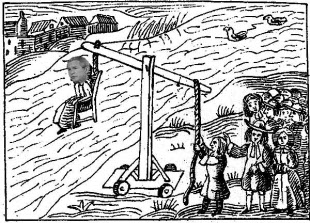“Washington – President Bush reversed course on Thursday and accepted Senator John McCain’s call for a law banning cruel, inhumane and degrading treatment of foreign suspects
in the war on terror.”

Wait, I’m sorry, I quoted the wrong story.That story, reported by the Associated Press, appeared on December 15, 2005!
Let me start over.
“Washington – March 8, 2008, President Bush vetoed a bill that would have explicitly prohibited the [CIA] from using interrogation methods like waterboarding…” the New York Times reported.
Hold it, I’m confused. Let’s back up.
Mr. Bush, 2005: The agreement will “make it clear to the world that this government does not torture and that we adhere to the international convention of torture, whether it be here at home or abroad.”
Mr. Bush, 2008: Legislation banning waterboarding “would take away one of the most valuable tools on the war on terror.”
Wasn’t this whole thing settled by Senator John McCain based on his own torture experience in Viet Nam?
Mr. McCain, 2005: “We’ve sent a message to the world that the United States is not like the terrorists… we are a nation that upholds values and standards of behavior and treatment of all people, no mater how evil or bad they are.”
And now, (March 8, 2008), the Washington Post reports that “The issue has potential ramifications for Senator John McCain (Ariz.), the presumptive Republican presidential nominee and longtime critic of coercive interrogation tactics who nonetheless backed the Bush administration in opposing the CIA waterboarding ban.”
I’m confused, again.
Isn’t this the same Senator McCain who criticized Rudy Giuliani when Giuliani said he was uncertain that waterboarding constituted torture?
Mr. McCain, 2007: “They should know what it is. It is not a complicated procedure. It is torture.”
“Retired Army Lt. Gen. Harry E. Soyster, a former director of the Defense Intelligence Agency,” the Washington Post reported, said ‘Torture is counterproductive on all fronts. It produces bad intelligence. It ruins the subject, makes them useless for further interrogation. And it damages our credibility around the world.’
“FBI Director Robert S. Mueller III and Navy Rear Adm. Mark H. Buzby, commander of the military detention facility at Guantanamo Bay, Cuba, defended the efficacy of less-coercive, ‘rapport-building’ interrogation tactics. ‘We get so much dependable information from just sitting down and having a conversation and treating them like human beings in a businesslike manner,’ Buzby said.”
This is what former Joint Chiefs Chairman Colin Powell wrote about torture in a letter to McCain in September, 2006:
Dear Senator McCain:
I just returned to town and learned about the debate taking place in Congress to redefine Common Article 3 [defining torture] of the Geneva Convention. I do not support such a step and believe it would be inconsistent with the McCain amendment on torture which I supported last year.
I have read the powerful and eloquent letter sent to you by one my [sic] distinguished predecessors as Chairman of the Joint Chiefs of Staff, General Jack Vessey. I fully endorse in tone and tint his powerful argument. The world is beginning to doubt the moral basis of our fight against terrorism. To redefine Common Article 3 would add to those doubts. Furthermore, it would put our own troops at risk.
I am as familiar with The Armed Forces Officer as is Jack Vessey. It was written after all the horrors of World War II and General George C. Marshall, then Secretary of Defense, used it to tell the world and to remind our soldiers of our moral obligations with respect to those in our custody.
Sincerely,
[Signature]
Ethical principles don’t change when the going gets tough or because of some political agenda. They’re supposed to remain constant. That’s why they call it a moral compass.
Comments










